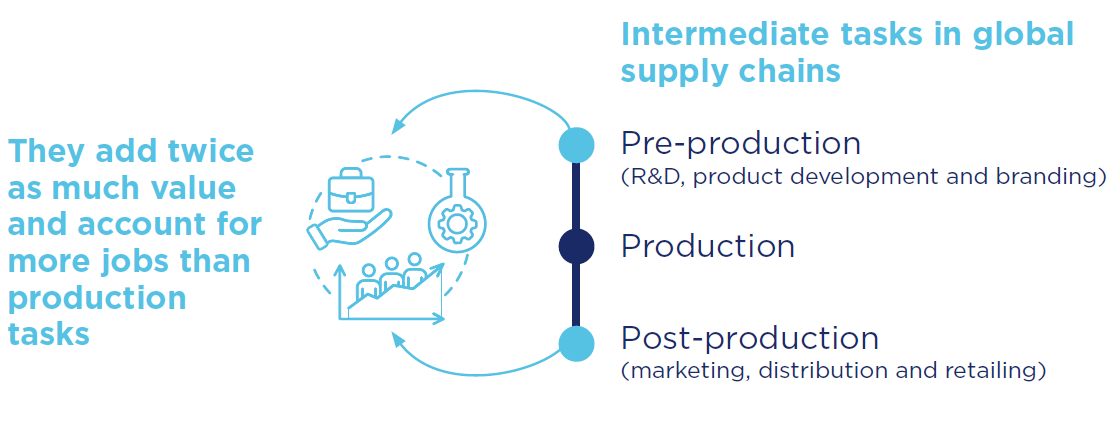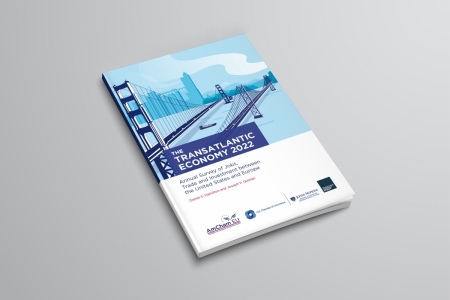Extended supply chains have turned trade in goods into trade in tasks. Companies fragment their production processes and their services activities into a number of intermediate tasks, which are undertaken in many different places to exploit the specific comparative advantage of each location. These intermediate or indirect linkages now account for at least 70% of all global trade flows.
Global supply chain tasks, in turn, can be broken down into three types: pre-production; production; and post-production. Pre-production tasks include research and development, product design, and branding. Post-production tasks include marketing, distribution, and retailing. Conventional trade measures only take into account one of these tasks: manufacturing production. They ignore both pre- and post-production, the two tasks that on average add twice as much value, and account for more jobs, than production tasks. Moreover, the firms that specialize in pre- and post-production also determine wherethese tasks take place – and those firms by and large tend to be in developed economies, including the United States and in Europe.
If you want to find out more about global supply chains and how they affect the transatlantic relationship, download our Transatlantic Economy Report.



